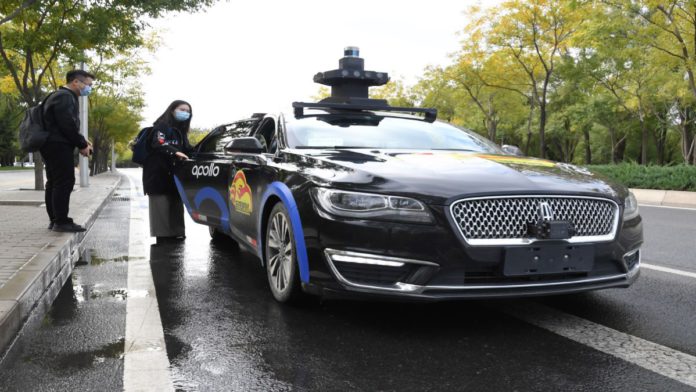Baidu has won approval from the country’s authorities to start testing fully driverless taxis on public roads. The Chinese technology and internet services company has received the node to test on 33 individual roads totaling 65 miles in less-populated suburbs. Baidu has already test-driven its vehicles on roads in Beijing, Wuhan, and California. Baidu will soon begin to test it’s driverless taxi on the roads of Beijing.
The announcement makes Baidu the first and only company with permission to conduct driverless tests without a safety driver in the autonomous driving vehicle-on public streets in China’s capital.
Baidu’s driverless taxis will be equipped with the company’s “Apollo” self-driving system, which uses artificial intelligence (AI) to navigate. The company plans to deploy the driverless taxis initially in the Chinese city of Changsha, where it will partner with local taxi firm Didi Chuxing.
Read more: Meta unveils BlenderBot 3, a competent chat AI
In China, Beijing has the most rigorous safety requirements for obtaining approval for driverless testing. According to the conditions announced by the Beijing municipal government last month, autonomous vehicles must complete over 30,000 kilometers of safe test-driving on open roads, have a T3 or higher testing ability, and pass an evaluation on a closed track.
License plates of autonomous driving road tests in Beijing have five levels, from T1 to T5, where T3 indicates that the vehicles possess road condition recognition, emergency disposal, and vehicular traffic laws compliance capabilities.
The driverless testing permits in Beijing are a crucial milestone in Baidu’s plan to build a commercial autonomous driving business. The AI-powered autonomous vehicles could operate in complex urban road conditions. The 5G remote driving service will power all the fully driverless vehicles that will undergo road tests in Beijing. This technology allows drivers to control vehicles remotely in case of an emergency.


